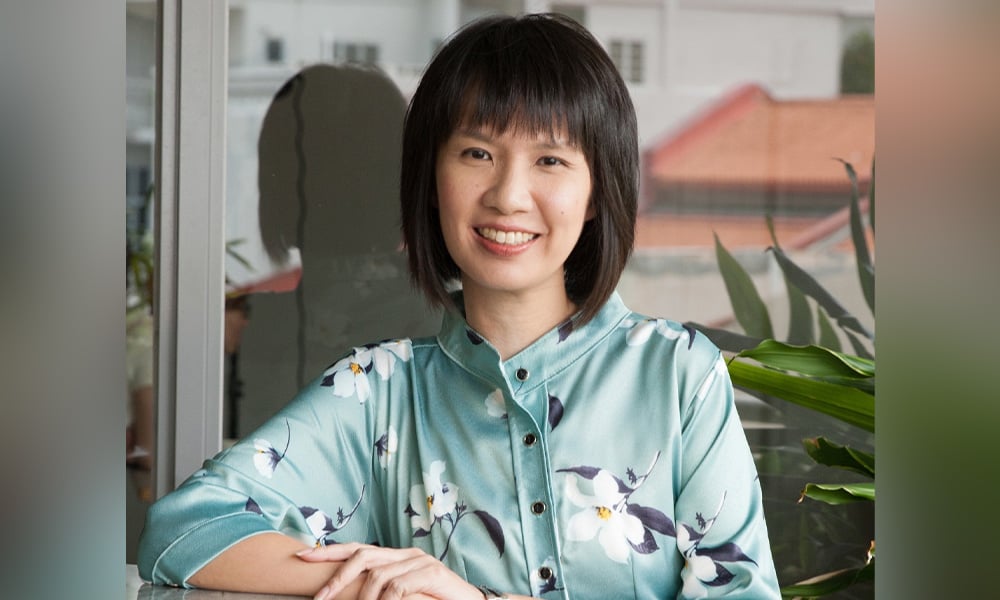
Can women really 'have it all'? A leader tells us how being a mum changed her

Sunday, May 9, was Mother’s Day in Singapore. The annual celebration of all the great things mum has done for the family can bring up discussions around whether we’re doing enough for them. The pandemic has highlighted just how much damage it can wreck on an overstretched working parent, but crisis or not, juggling career and family is a heavy load on its own.
READ MORE: Working parents suffer extreme burnout during pandemic
The reality is that most working mothers deal with the struggle of managing both hats throughout their careers. Understandably the major life change will massively impact the way you view your career, including your expectations of yourself, your employer, and your support system. We spoke with Sher-li Torrey, founder and director at Mums@Work, and proud mother of two children, who candidly shared how motherhood changed her perspective on life.
Before she had any children, Torrey was the typical young, ambitious, and competitive careerwoman. Her top few priorities included ‘the usual’: climb the corporate ladder, chase the job titles, and get more ‘power’ or authority within the job role. Then her firstborn daughter came along, and it felt like her whole world had changed.
“I think for me, it became quite clear that the usual [priorities] weren’t as significant anymore,” she told HRD. “It’s quite interesting that when I speak with other working mums, they share the same thing. It made me realise that it is true – as you go through the different life stages, regardless of age, your perspective of the world changes, and therefore your perspective on career changes. You want something different.”
It didn’t mean that she wanted less out of her career – she just wanted something different out of it. During the chat, she quickly shut down any ideas that motherhood makes you less ambitious or focused on your career progression. “I want to say this because I know that some employers think that once you become a mum, you become less interested in pursuing a career – that’s not true,” she said. “I know women who work harder because they have children. Because they want to put more food on the table – the motivation is there.”
However, having children does create a strong longing to devote more time to family, making it a complicated scenario for working mothers. Unfortunately when Torrey was looking for an option to meet her changed needs 10 years ago, there weren’t that many options for women in Singapore, which is why she decided to create a social enterprise to champion working conditions for women here, and hopefully be able to spend more time with her own children. “Perhaps being a mother also opened my eyes to the challenges we have in society,” she said. “I didn’t used to think this way, but after I became a mum, I suddenly hoped that the world was going to be a better place in future.”
READ MORE: How to support breastfeeding employees in Hong Kong
The idea of a “better future” wasn’t just a pipedream for Torrey. She’s hoping that by the time her daughter goes into the workforce and becomes a mother, she’ll be given the option or flexibility to develop a career without compromising on her caregiving role. “If anyone tells you that this is all going to solve itself in the next five or 10 years, I’ll tell you it’s not true,” she said. “It will be a gradual process.”
Those options should cater to working fathers as well. “I know men who say the same thing,” she said. “When you have a kid, you want to spend time with them and learn and preserve the child. There are a lot of emotions invested and once you have that your life stage changes. Your motivations change.” This is why leaders must recognise an individual’s different life stages and find ways to support the varying needs at each stage.
READ MORE: Are leaders doing enough to support working fathers?
Admittedly, helping people sustain the balance is tough and almost elusive, whether they’re single or with children. But at least, leaders need to understand that if someone is naturally a caregiver, they’ll always feel “pulled in different directions” – and that’s okay. Torrey shared that she has a very supportive husband who’s always “on the ball” with their children, but even then, she still feels the desire to care for and nurture her loved ones.
“I can honestly tell you that this struggle, this pull, it won’t go away,” she said. “It can ease over time if there were more options available [career-wise]. But I think it’s very hard to eradicate the feeling entirely and ensure that both genders were completely equal on the home and work front.
“That’s why people always say: can we have it all? Well I don’t know about that but I think this constant struggle to maintain work and family balance is always going to be there.”